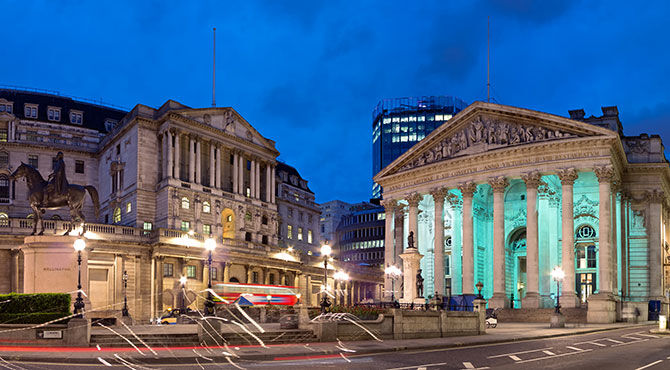Interest rates rise looms as inflation hits five-year high
Mark Carney told the House of Commons Treasury Select Committee that interest rates are expected to increase due to inflation, as a result of a weakened pound after the Brexit referendum last year.

Interest rates expected to rise in November
The figures from the Office for National Statistics (ONS) showed that, as forecast, the Consumer Price Index (CPI) rose to three per cent over the month, up from 2.9 per cent in August. The three per cent rate was last recorded in April 2012 with the latest rise reaffirming expectations that the Bank of England will increase base interest rates, probably in November.Giving evidence before the House of Commons Treasury Select Committee as the data was published, Mark Carney, the bank’s governor, said the fall in the value of sterling since last year’s Brexit referendum was likely to see the CPI go higher “in the coming weeks”.He reminded the committee that the Bank of England had said before the referendum that a ‘leave’ vote would result in the pound being hit. “We expected sterling to fall sharply. It did. That passes through to prices,” Mr Carney said. “The sole reason that inflation has gone up as much as it has is the depreciation of sterling.”Mike Prestwood, head of inflation at the ONS, said, “Food prices and a range of transport costs helped push up inflation in September. These effects were partly offset by clothing prices that rose less strongly than this time last year.“While oil and fuel costs continued to rise, overall the rates of inflation for raw materials and goods leaving factories were little changed in September.”Higher inflation rates a concern for businesses
While the rise in inflation added to the pressure on household budgets, the bad news for business was that data also showed the Retail Price Index (RPI) measure running at 3.9 per cent – which will be the figure used to set next year’s business rate increase.Suren Thiru, head of economics at the British Chambers of Commerce (BCC), commented, “Inflation rose for the second successive month, confirming that price growth remains on an upward trajectory. The rise in September mostly reflects increasing prices for food and recreational goods, along with transport costs, which fell by less than they did a year ago.“Higher inflation remains a concern for business as it increases the pressure on firms cost base and weakens investment intentions.“The MPC (Monetary Policy Committee) is facing a tricky trade-off between rising inflation and a weakening economy. However, it remains likely that the current spike in inflation is temporary with little evidence that rising consumer prices is driving materially stronger pay growth.“The BCC’s latest Quarterly Economic Survey confirms that the percentage of firms citing pay settlements as the key driver behind price pressures remains well below the historic average. We expect that inflation is likely to peak shortly, before easing back in 2018 as the impact of the post-EU referendum slide in sterling drops out of the calculation.“The MPC should resist the temptation to raise interest rates, particularly during this period of heightened political uncertainty. Raising rates before the UK economy is ready risks undermining consumer and business confidence, weakening the UK growth prospects further. Next month’s Autumn Budget must also be used to boost confidence and growth, including addressing the escalating burden of up-front taxes and costs associated with doing business in the UK.”Related stories
- Manufacturers call for Brexit transitional deal before 2018
- BCC calls on government to put business first in budget
- IMF: ‘lawmakers must act to protect global recovery’
UK economic outlook remains fragile
The EY Item Club also called for the MPC to delay any decision on raising interest rates, warning such an increase risked hurting the UK’s “fragile economic outlook”.Using the Treasury’s own forecasting model, EY predicted GDP growth would slow to 1.5 per cent this year and 1.4 per cent next. “While it is understandable that the MPC will want to gradually normalise interest rates from their current ‘emergency levels’, we believe it would be better to do so once the economy is on a stronger footing,” said Howard Archer, chief economic adviser to the EY Item Club.According to the EY forecast, inflation will fall back to two per cent by the end of next year as the effects of the weaker pound wear off.For related news and features, visit our Enterprise section.Relocate’s new Global Mobility Toolkit provides free information, practical advice and support for HR, global mobility managers and global teams operating overseas. Access hundreds of global services and suppliers in our Online Directory
Access hundreds of global services and suppliers in our Online Directory
©2025 Re:locate magazine, published by Profile Locations, Spray Hill, Hastings Road, Lamberhurst, Kent TN3 8JB. All rights reserved. This publication (or any part thereof) may not be reproduced in any form without the prior written permission of Profile Locations. Profile Locations accepts no liability for the accuracy of the contents or any opinions expressed herein.









































